Sir Michael Wilshaw has just revealed that his favourite childhood toy was a silver gun, and his favourite film is The Godfather. It is an emblematic moment. Known as a say-it-straight, rough, tough, make-‘em-sit-in-silence type headteacher, it fits his legend perfectly. Given that Ofsted is sometimes talked about by teachers as a form of mafia – forever watching and waiting to pounce – the answer seems entirely apt.
But it is at odds with the past hour of our conversation, where the chief inspector has been as quiet and thoughtful as his ex-colleagues say he would be. His only Don Corleone-like mannerism is his tendency to use militaristic language when talking about school-life: all battles, fights, and scars.
It is perhaps this love of conflict that has led to his reputation as a battle-axe. But is it fair?
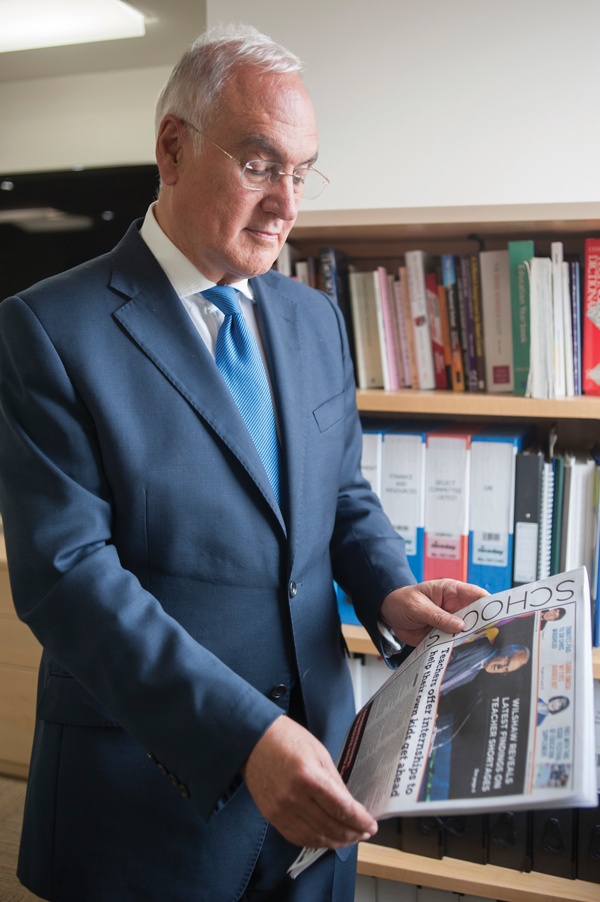
Born in the foothills of the Himalayas, Sir Michael lived in India until he was two. His family then brought him to south west London, where he later attended Clapham College, a Catholic boys’ grammar school run by Xaverian brothers – as one might expect for a man who later became known for his strict behaviour policies.
He began his teacher training aged 18, inspired by his history teacher Mr Pocock, a charismatic and passionate man who instilled a love of the subject into the young Wilshaw.
Teacher training was not as onerous as it is for today’s trainees. “I had a great time,” he chortles. “Didn’t work very hard. All the hard work has gone on since I left college!”
His first teaching job was in a school in Dock Head, south London, “teaching the children of dockers”. In an apocryphal tale he talks of the pain when a girl at the front of one of his classes yelled out: “Sir, have you thought of doing something else with your life?”
He laughs. But has he ever thought that – then, or now?
“No,” he says firmly, “because after those initial days I really grew to enjoy what I was doing, and just realised that it was for me – and I got promoted quite quickly.”
He moved into senior roles by his 30s, and became a headteacher at St Bonaventure’s, in east London, before his 40th birthday. Only once did he move out of the capital – to Woodford in Essex – and into a school with a slightly more affluent intake.
“The great thing about inner city schools is that parents trust you to do what’s best for their children without question, so I often found the parents there to be much more amenable”.
Does that mean he has picked schools where it’s been easiest to enforce his will?
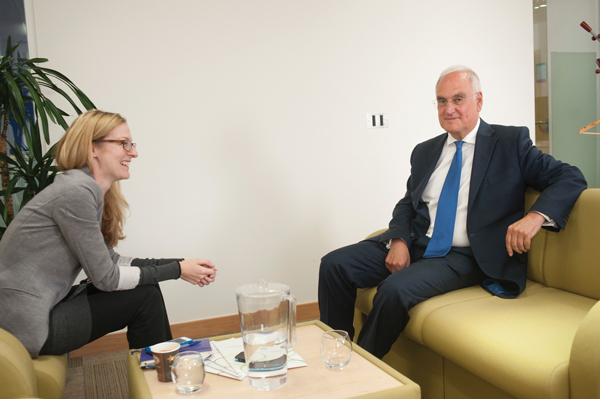
He riles. “It’s never easy. Teaching in Peckham and Hackney and Bermondsey was never easy … But the parents are much more appreciative of what you do … Do well by their children, demand that they stay in school until 7 o’clock in the evening, or come in on a Saturday morning, and they would rarely argue about that because they knew that they didn’t have the capacity to do that, and looked upon you to support them, and saw education as important, whereas I didn’t sense that that was the case at times in Woodford.”
As he talks about his first headship in the mid-1980s it is clear that he feels the unions, and the local authority, made it tougher to turn around the school.
“Teachers were walking out of class every five minutes. I was doing lunch duty every day for about two or three years, on my own, covering classes in the hall, otherwise there was no-one else to look after them. I still bear the scars of those days.”
Today’s heads would argue that it is no less difficult, especially given the pressures of Ofsted. If he were 39 today, would he still want to step up to headship?
“I think it would be easier now! Because in the ‘80s, when I first became a head, to take on a teacher, an incompetent teacher, was almost impossible – and I did it, to try and turn around the school. It was hugely difficult.
“It’s that much easier now for a young, go-ahead headteacher to go in and tackle poor performance, do what’s necessary and be rewarded for it – because it’s expected now.”
After 18 years at St Bonaventure’s, and having received a knighthood in 2000 for services to education, Wilshaw moved to Hackney, also in east London, and opened Mossbourne Academy – one of New Labour’s first academies, built on the same site as the infamous Hackney Downs that had closed some years earlier.
He is keen to explain that Mossbourne did not operate as many people think.
“People say, ‘It must have been very didactic, lecture-style teaching’, but it wasn’t. A lot of the teaching was very innovative. The best teacher I remember was a modern languages teacher who regularly jumped on her desk and taught from her desk, you know, and helped youngsters in groups. She taught them extremely well.”
Morning briefings, held three times a week for 20 minutes, he says, involved teachers sharing things that had gone well and swapping ideas.
Sucked in by his enthusiasm for professional development I ask who inspired him and who he learned from at Mossbourne. He looks puzzed.
“It sounds very arrogant to say I didn’t need much help, but I knew all the pitfalls. And I could replicate all the stuff that I had done in Newham in Hackney, with similar sorts of children.”
It does sound a touch arrogant. It’s also surprising. If you work as a headteacher for 30 years, and over that time you don’t need to learn much from others, how does it feel to walk into a job at Ofsted that is so very different?
“It was a real challenge,” he admits. “I was good at running one institution … but this was a whole new challenge.
“As a head you are very much a hands-on person; you do it yourself, and you know what to do. In a large organisation like this with hundreds of inspectors and different types of inspection, different remits, you are working through other people. Communication is absolutely key.”
He says that some things went right, and some didn’t, “but I think – although I shouldn’t blow my own trumpet – I think it’s a better organisation now than it was three years ago.”
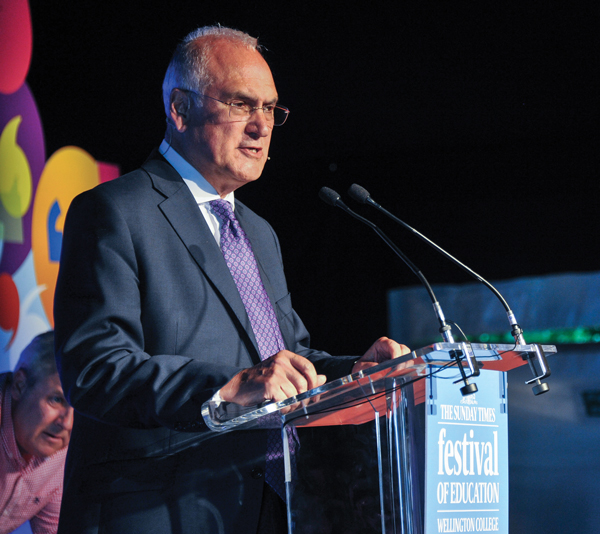
There is evidence to support his claim. Since his leadership the organisation has moved inspectors inhouse to ensure consistency in their training, it has created a new regional structure, and published several important thematic reports, including one this week on non-examined year groups in secondary schools. He also battled hard to win the right for Ofsted to inspect academy chains – something for which he is rarely credited.
If all this is true, I ask provocatively, why has the organisation’s reputation tanked so rapidly?
“When people say, as you suggest, that people have a low opinion of us – parents don’t! Every survey we’ve done, parents want us to be in schools every year, never mind every three or four years!”
He puts teacher and school leader fury towards Ofsted down to his relentless drive for challenge.
“Me coming out and being quite critical sometimes of leaders not doing what they should be doing, giving my view about how schools should be run, immediately puts people’s backs up. … and what has become clear to me is, once one person says ‘Ofsted’s broke’ … other people jump on that bandwagon.”
What of the idea that fear of Ofsted, that it is bullying headteachers, is causing the problem?
“I know we’ve got this reputation of being this tough organisation that costs people their sanity and their jobs, but our job is – through inspection – to say what needs to be said and improve standards.”
It is this idea – that one must say or do what needs to be done – which bubbles throughout our conversation. It is also why he gets his reputation as a battle-axe. As the character Vincent Mancini says in The Godfather III “He should be careful. It is a dangerous thing thing to be an honest man.” Perhaps it is an apt film metaphor after all.
IT’S A PERSONAL THING
Tea or coffee?
Green tea. I’ve only become a convert because my stomach’s bad.
Best childhood toy?
I remember Roy Rogers, and my parents bought me a couple of guns. Well, you know, toy guns. They were silver, that’s all I can remember.
Best advice you were ever given about work?
People around me especially in the dark days when I was struggling with school, gave me that advice about “keep strong, try to get a bit of work/life balance when you work 16 hours and day” and told me that I had it in me.
Perfect Sunday afternoon?
Read papers, pint of beer, and a walk.
If you can only read one book again what would it be?
Middlemarch, I think. I read it three times when I was 17 and thought it was a wonderful book.
If you were stuck on a desert island, what film would you want to take with you?
I would probably take The Godfather because it’s one of the great films – cinematography, acting, plot, storyline, everything. Wonderful, wonderful film.








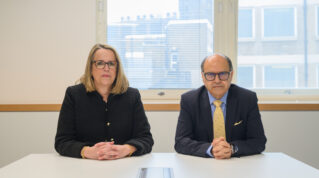
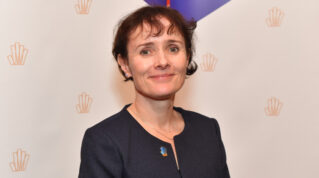

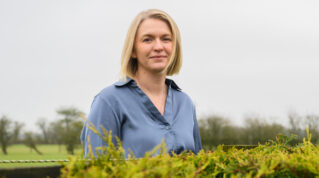

SMW’s wrong about why the teaching profession mistrusts Ofsted – here’s the real reason: http://www.learningspy.co.uk/featured/what-i-dont-understand-about-michael-wilshaw/